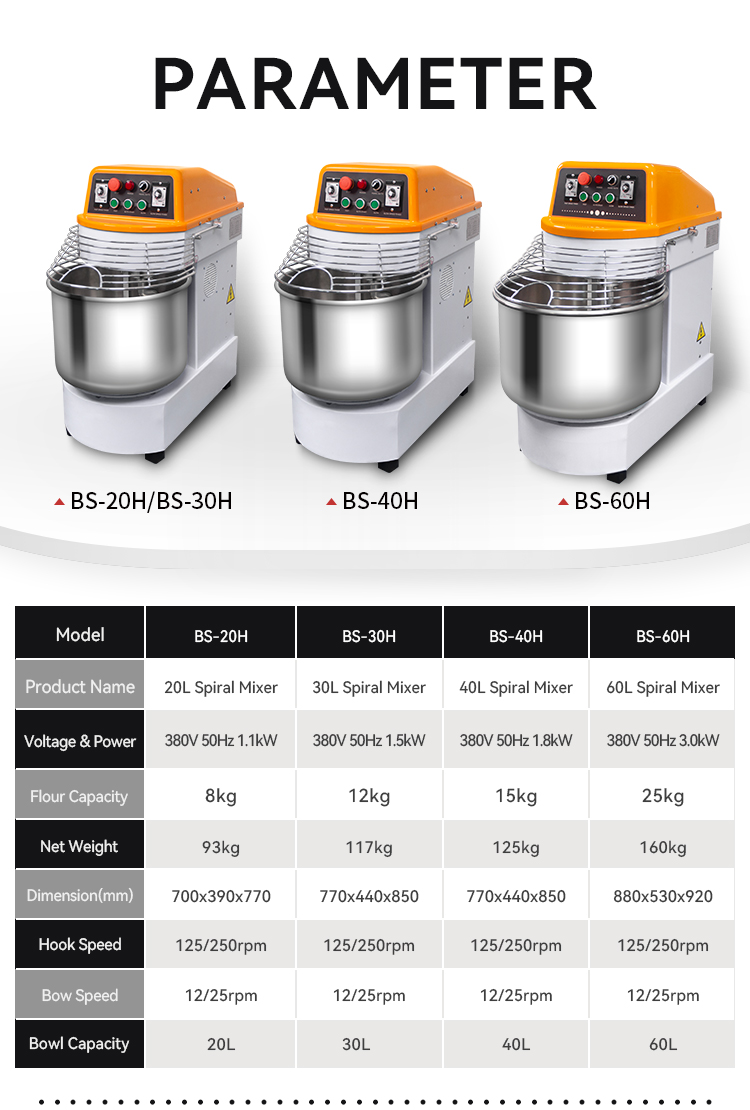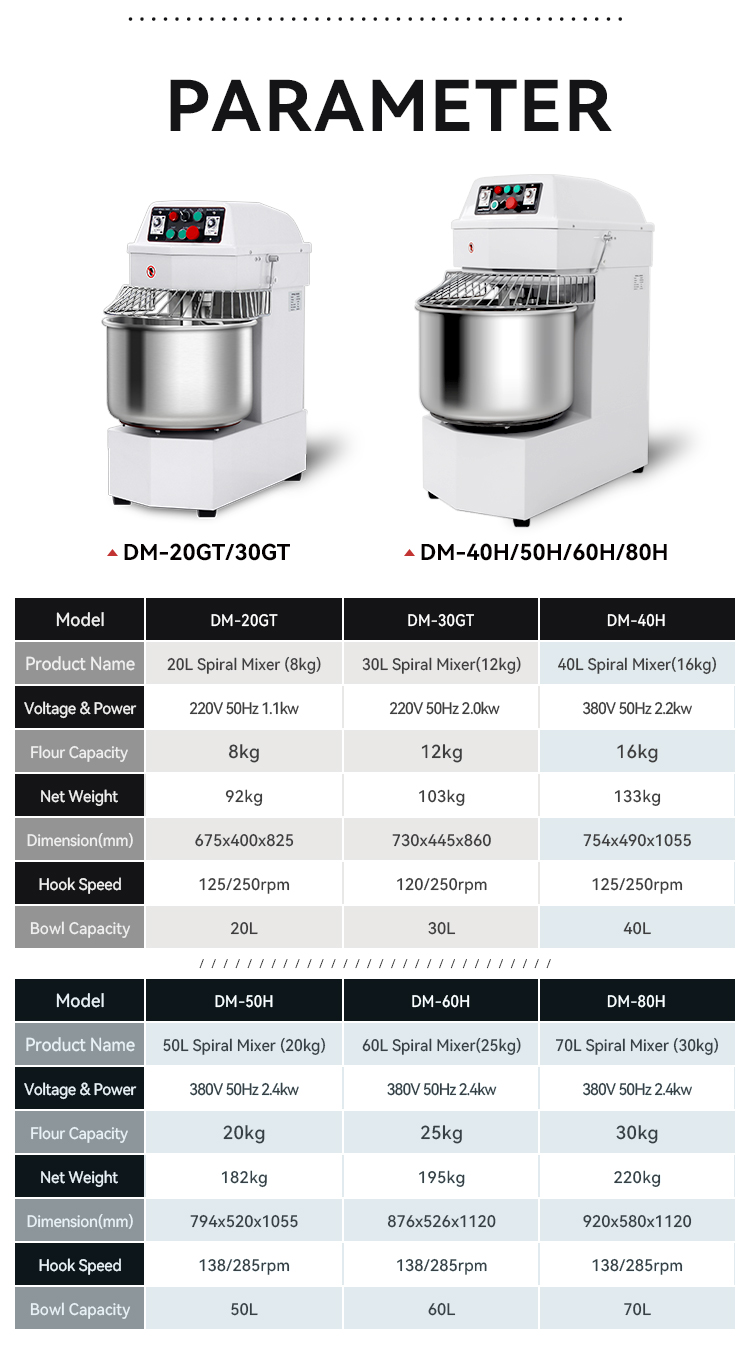Cómo elegir la capacidad adecuada para una amasadora comercial
Elegir la capacidad adecuada para una mezcladora de masa comercial es crucial para su negocio de panificación, ya que afecta la eficiencia de la producción, la calidad de la masa y el ROI (retorno de la inversión) del equipo. A continuación se presentan algunos factores clave que le ayudarán a determinar la capacidad adecuada:
1. Estime el volumen de masa diario según las necesidades de producción
-
Estimar la cantidad total de masa que necesita producir diariamente es el primer paso para seleccionar la capacidad de su mezcladora de masa. Según el tipo de negocio (panadería, pizzería, restaurante, etc.), calcula la masa media necesaria por día o por hora.
-
Recomendación: Una pequeña panadería o cafetería con menores necesidades diarias de masa podría ser adecuada para mezcladoras de masa medianas o pequeñas, mientras que las fábricas de producción de alimentos a gran escala o cadenas de tiendas pueden necesitar mezcladoras de masa de alta capacidad.
2. Tamaño de lote para producción de masa
-
Es fundamental saber cuánta masa planeas hacer por lote. Si planea hacer lotes grandes a la vez sin ejecuciones frecuentes, elegir una máquina de alta capacidad mejorará la eficiencia.
-
Recomendación: Si necesita hacer 50 kg de masa por lote, considere una máquina con una capacidad ligeramente mayor (por ejemplo, 60 kg) para evitar la sobrecarga y garantizar una mezcla uniforme.
3. Tipo de batidora y nivel de hidratación de la masa
-
Los diferentes tipos de amasadoras (como las de espiral, planetarias o de brazo) están diseñadas para diferentes niveles de hidratación de la masa. Las masas más secas (como la masa de pizza) requieren más esfuerzo, por lo que necesitarás una batidora con mayor capacidad que pueda manejar masas más duras durante períodos prolongados.
-
Recomendación: Elija una batidora que pueda manejar el nivel de hidratación específico de la masa y asegúrese de que la resistencia de la máquina pueda soportar un funcionamiento más prolongado con masas rígidas.
4. Considere el crecimiento futuro
-
Piense en sus necesidades de producción de masa a medida que crece su negocio. Si prevé aumentar su volumen de producción, elegir una mezcladora de masa un poco más grande puede ayudar a evitar actualizaciones frecuentes del equipo, reduciendo costos futuros.
-
Recomendación: Si su requerimiento actual es de 30 kg de masa por lote pero puede aumentar a 40 kg, considere optar por una mezcladora con una capacidad de 50 kg.
5. Restricciones de espacio y presupuesto
-
Asegúrese de que la capacidad de la batidora se ajuste al espacio disponible en la panadería o fábrica. Los mezcladores de mayor capacidad pueden ocupar más espacio y costar más, por lo que deberá equilibrar los costos del equipo con su presupuesto.
-
Recomendación: Las panaderías pequeñas y medianas pueden elegir mezcladoras con una capacidad de menos de 40 kg, mientras que las fábricas grandes o entornos de producción en masa deben optar por una capacidad de 60 kg o más.
6. Producción frecuente frente a producción por lotes
-
Si su proceso de producción permite hacer masa con frecuencia en lotes pequeños, entonces una batidora de capacidad mediana o pequeña podría ser suficiente. Por el contrario, si prefiere reducir la frecuencia de los lotes, elija una batidora más grande para manipular más masa de una sola vez.
-
Recomendación: Producir grandes cantidades de una sola vez es más adecuado para empresas de gran volumen, mientras que la producción en lotes pequeños puede ser ideal para operaciones más flexibles, como las panaderías artesanales.
Si desea ver más productos, haga clic en Mezcladora de masa
Si no sabe cómo elegir la capacidad adecuada para una batidora de masa comercial, nuestros productos pueden darle algunas sugerencias, como sigueï¼



